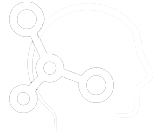Frequently Asked Questions
Why do we need to know the numbers of infected cases?
This is a non-exhaustive list of reasons:
- Knowing the number of cases and its evolution allows to make better forecasting of the resources that will be needed in the future, like hospital beds, ICU beds, and ventilators.
- Accurate data on the evolution of the number of cases allows to know if the containment measures taken are being effective.
- Knowing the percentage of the population infected allows to decide what level of herd immunity has been reached, and whether the containment measures can be maybe partially lifted.
Why is this project useful?
The different governments and organizations have problems evaluating the reach of the epidemic, having limited resources and testing capacity at their disposal. Hence, any means to evaluate the number of persons with symptoms compatible with COVID-19 with reasonable level of accuracy is useful.
Why the usage of short open anonymous surveys?
- The survey is short because we do not want to take much of your time.
- The survey is open because we want to attract as many participants as possible.
- The survey is anonymous so you do not have to worry about your privacy.
What personal information do you collect from a participant?
Absolutely none.
Why do you ask about my contacts’ health instead of mine?
- We do not want to request your health information. It is too personal.
- Getting the aggregate information of your contacts allows us to reach a larger fraction of the population. For instance, if we receive 100 responses each reporting about 100 persons, we have information of 10,000 people.
How often should I fill in the survey?
Ideally once a day even if your response does not change. This allows us to gain confidence in our data. If you cannot answer daily, please do so as often as possible. We ask you not to answer multiple times a day for the same geographical region. But you can answer once a day for different regions or countries.
What if there are overlaps in answers; people that know some fraction of people in common. Does it impact the estimate?
Actually, overlaps are not critical since we are surveying a ratio and not absolute numbers. If we sample enough data and have a good distribution among the population, we can converge to the true value. We have conducted an experiment in a synthetic social network with the population of Portugal (10 Million) and an infection rate of 0.75% and quickly approached the correct value even with extensive overlapping while under uniform sampling.
What if I know people that fell ill and recovered. Should I count them?
Yes!
What if I know people that fell ill and died. Should I count them?
Yes, and please accept our condolences.
Should me and my spouse participate separately in the survey?
Yes, please.

